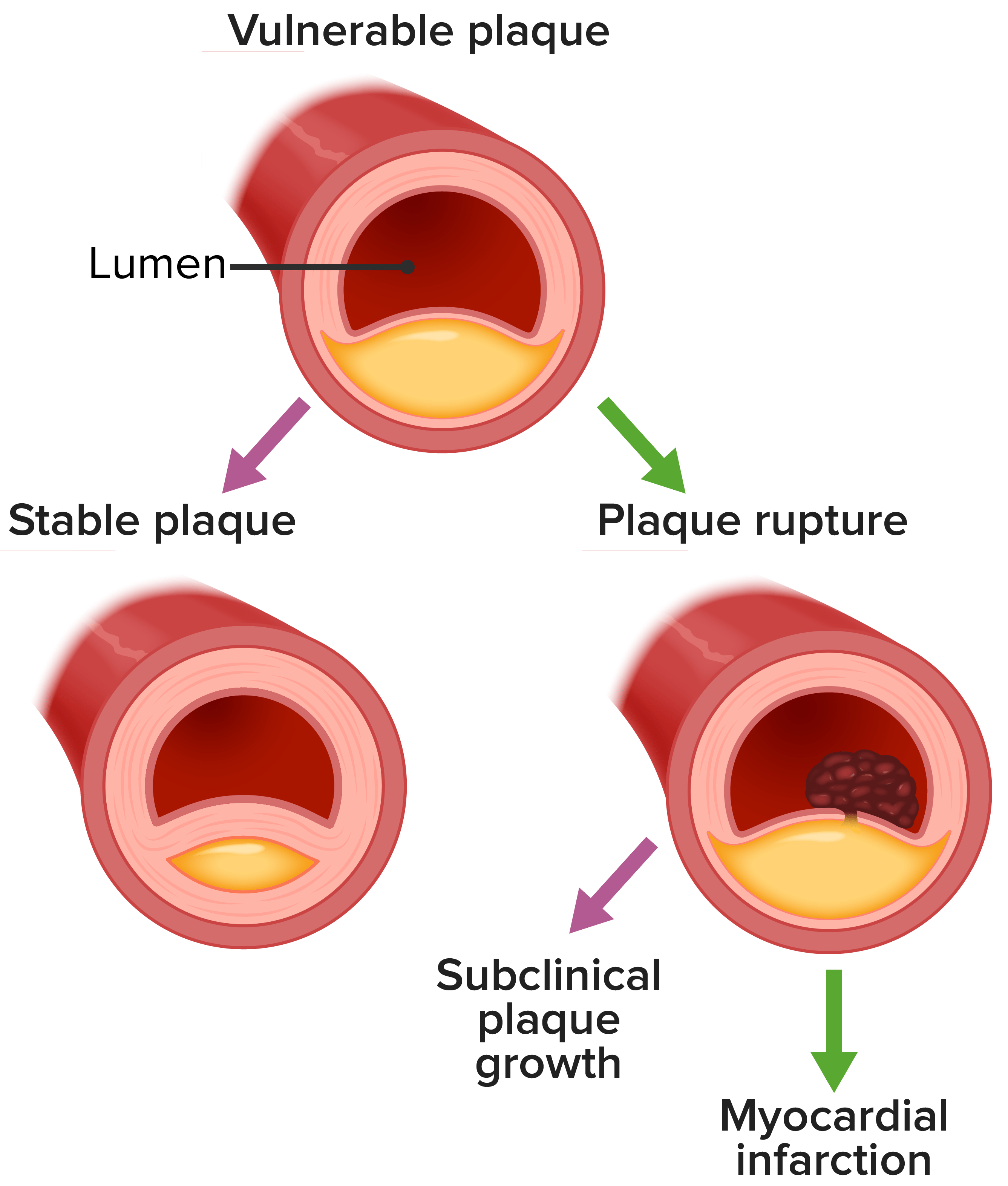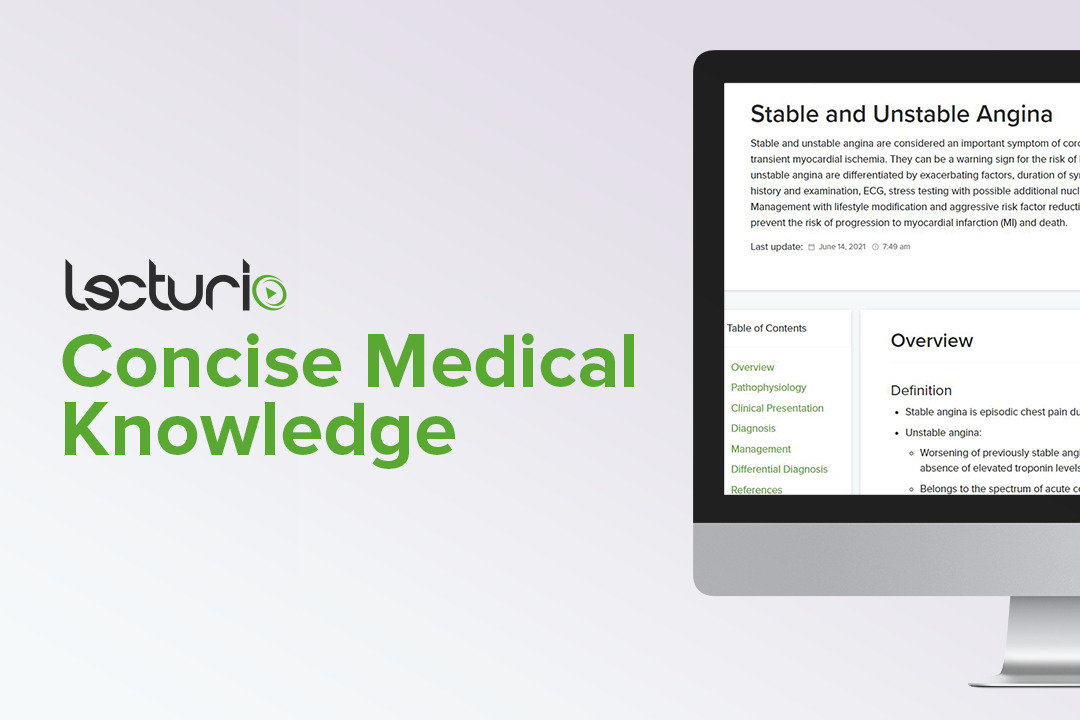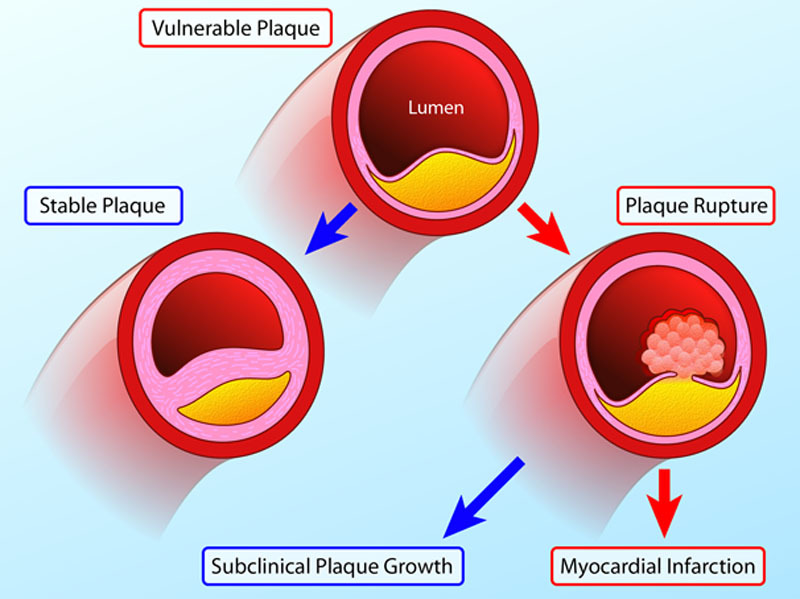Playlist
Show Playlist
Hide Playlist
Cardiac Syndromes
-
Slides Ischemic Heart Disease.pdf
-
Reference List Pathology.pdf
-
Download Lecture Overview
00:00 Okay. Let's talk about some cardiac syndromes and ischemic heart disease. 00:04 So angina pectoris, chest pain. That's what that means or angina pectoris, either way, angina, angina will have kind of three general flavors. 00:17 So you can have stable angina pectoris. 00:19 So that means that you're pretty much here on the scales of perfusion, demand, perfusion, demand. 00:24 Now, if demand increases relative to perfusion, you're going to have predictably, some degree of angina, chest pain. 00:34 That's associated with that degree of activity. So at rest, I'm fine. 00:37 And then I get up and I run around the block once, and I have chest pain but it's pretty reliable. It happens at that level. 00:45 That's where I've exceeded my balance. So that's a stable angina. 00:50 There is Prinzmetal angina which I've described previously, where you have vasospasm and sometimes, this can be related to the production of catechols, Epinephrine, things like that. 01:01 Sometimes, we don't know necessarily what's driving that. 01:05 And then there's unstable angina. 01:09 And unstable anginas, we'll see in a few slides, actually has three flavors of its own. 01:13 So unstable angina means I'm having brand new onset chest pain that I haven't had before. 01:20 So the first onset of something that may eventually become stable is called unstable angina. 01:25 I'm getting chest pain. Previously, I used to be able to run around the block, no pain. 01:29 Now, I ran around the block today, I got some pain. That's unstable angina. 01:34 It needs to be evaluated as such. You can have - so that's new onset. 01:38 You can have progressive angina. So previously, you ran around the block. 01:43 That gave me angina. But now, I run halfway around the block and I get angina. 01:47 That is unstable. It's progressive. It's getting - it's presenting with less activity. 01:53 Or there can be onset of angina at rest. So I'm not doing anything. 02:00 I'm not increasing supply or demand or anything. 02:02 And suddenly, I've got chest pain. That's a third form of unstable angina. 02:06 And all of those, say, "Oh, things are going wrong somewhere in the coronary artery. 02:11 And yet, needs to be evaluated." Myocardial infarction. 02:17 This is now beyond chest pain. So chest pain is just like, you know, it is a shot across the bow. 02:23 You need to evaluate why this is happening. 02:25 But Myocardial infarction means, now, it's not a shot across the bow. 02:28 It's a shot into the bow. And this is when the severity or the duration of ischemia is sufficient to cause cardiomyocyte death. 02:37 And basically, it's cutting off the blood supply to some portion of the heart for more than 20 or 30 minutes, and those heart muscle cells check out. 02:45 Sudden cardiac death, SCD can occur as a consequence of tissue damage from a myocardial infarct. 02:51 But in the vast majority of cases, sudden cardiac death, meaning, you die within the onset of symptoms, within an hour or so of onset of symptoms, is not usually a consequence of a myocardial infarct but is most commonly a lethal arrhythmia due to myocyte ischemia but not myocyte necrosis. 03:12 It can be due to an infarct. 03:14 But again, more commonly, 90% of cases are going to be due to a fatal lethal arrhythmia. 03:20 And then you can have chronic ischemic heart disease with congestive heart failure. 03:26 So you can have an acute MI, damage part of the muscle. 03:30 You don't die from it, but now, the compensatory mechanisms of the residual viable myocytes try to hypertrophy, try to maintain cardiac output and over a period of time, they fail. 03:42 And if you want to learn more about congestive heart failure, that's another talk. 03:47 But anyway, so that can be one mechanism. 03:49 The other one is you can have tiny little ischemic insults that just like death by a thousand papercuts, eventually cause dysfunction and congestive heart failure.
About the Lecture
The lecture Cardiac Syndromes by Richard Mitchell, MD, PhD is from the course Ischemic Heart Disease.
Included Quiz Questions
What is the most common cause of sudden cardiac death?
- Arrhythmia
- Hypercoagulability
- Congenital abnormality
- Left ventricular free-wall rupture
- Pulseless electrical activity (PEA)
Which of the following describe(s) unstable angina? Select all that apply.
- New-onset angina
- Prinzmetal angina
- Angina that always occurs with the same level of activity
- Angina occurring at rest
- Angina that occurs with less activity than before
Customer reviews
5,0 of 5 stars
| 5 Stars |
|
5 |
| 4 Stars |
|
0 |
| 3 Stars |
|
0 |
| 2 Stars |
|
0 |
| 1 Star |
|
0 |






